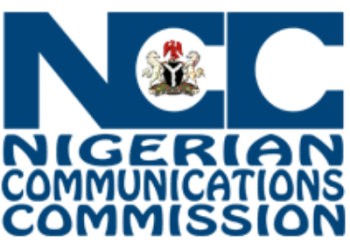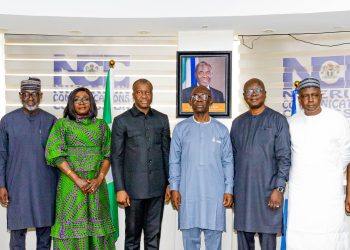By Nkechi Eze
Corruption Embraces a broad spectrum of activities, ranging from fraud (theft through misrepresentation), embezzlement (misappropriation of public or private funds) to bribery, through payments made in order to gain an advantage or avoid disadvantages. In the political spectrum, corruption occurs in the rigging of election, the purchase and sale of votes and falsification of election results. Nigeria has sought to tackle corruption through legal and governance-based measures, emphasizing on the reform of public procurement rules, public financial management, anti-corruption laws and the establishment of various agencies tasked with preventing corruption and punishing those who engage in it. The focus on transparency and legal sanctions is critically important, but innovative and complementary approaches are needed to foster a comprehensive shift in deeply ingrained attitudes to corruption at all levels of society.
As part of living up to its mission, to eradicate all forms of corruption through lawful enforcement and preventive measures, the Independent Corrupt Practices and Other Related Offences Commission (ICPC) joined forces with the Nigeria Union of Journalists (NUJ) and MacArthur Foundation to intensify the battle against corruption in Nigeria.
As part of this collaboration, a one-day training session was held at Reiz Continental Hotel on Monday 21st October 2024, in Abuja, bringing together over 70 journalists from across the country to equip them in the fight against corruption.
Declaring the workshop open, Senator Udende Emmanuel, Chairman Senate Committee on Anti-Corruption and Financial Crimes, commended the ICPC for its commitments towards fighting corruption to the barest minimum.
He urged media professionals to be truthful and follow ethics of the profession while discharging their duties, and gave the assurance that the National Assembly would continue to support anti-corruption agencies to wage war against corruption and other financial misappropriations in the interest of good governance.
Chairman of Independent Corrupt Practices and Other Related Offences Commission, ICPC, Dr Musa Adamu Aliyu in his welcome address, called on the media to intensify efforts in supporting the fight against corruption in Nigeria, while highlighting the essential roles the media play in promoting transparency and holding individuals as well as institutions accountable.
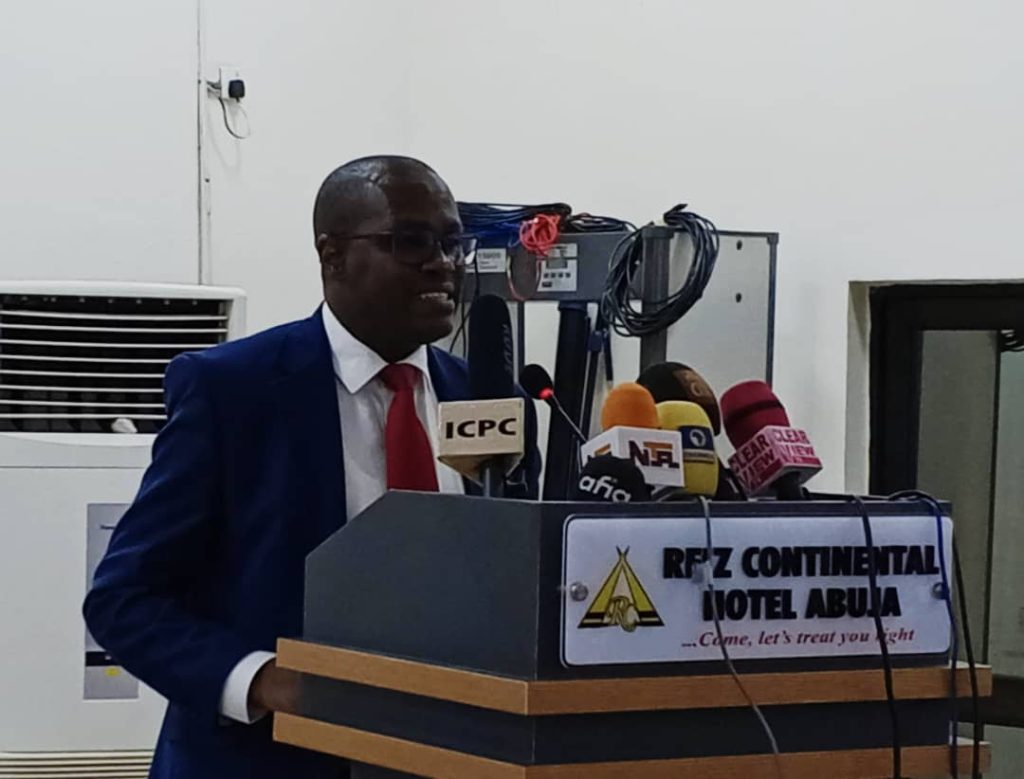
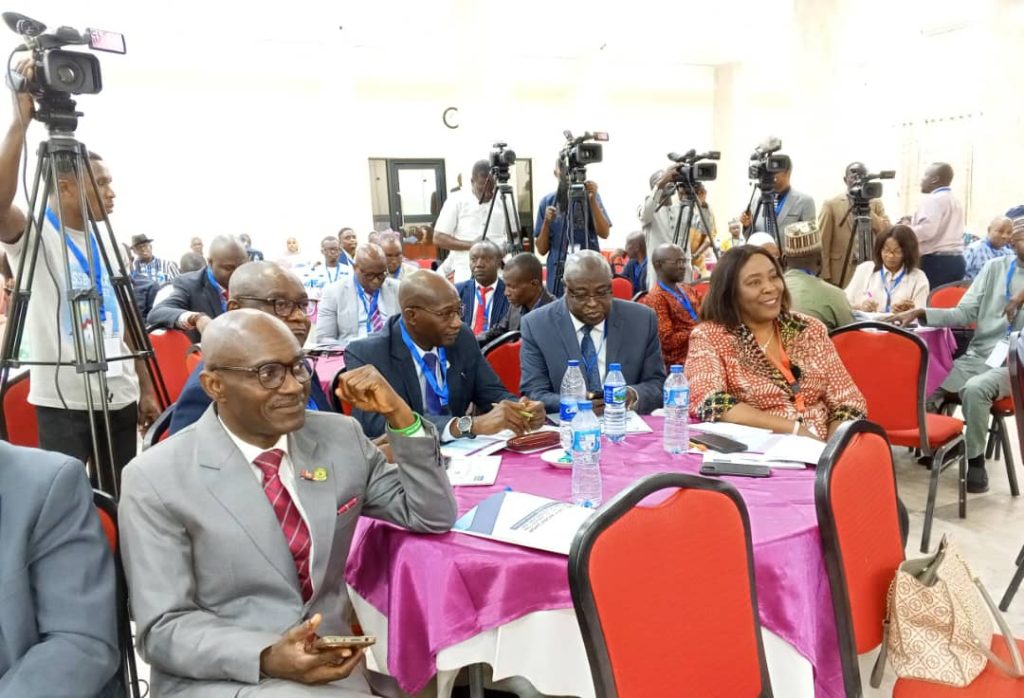
According to him, the media is a crucial partner in exposing corrupt practices and creating public awareness about the detrimental effects of corruption.
“The media is a key ally in our fight against corruption, without the work of investigative journalists and robust reporting, much of the corruption we see today would remain hidden from the public eye,” he stated.

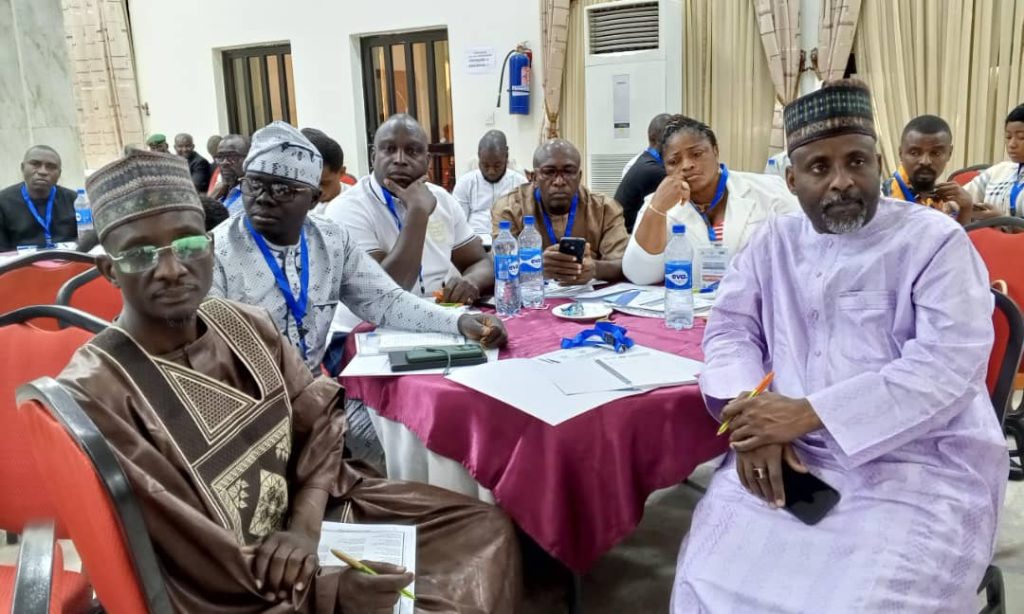
While urging pen professionals to continue digging deep into corruption cases, he also advised that accuracy, fairness, and professionalism should be the watchword in their reportage.
Dr. Kole Shettima, the Country Director of the MacArthur Foundation, called on the media to expose corruption, highlight positive stories and individuals driving change in Nigeria’s fight against corruption.
Comrade Chris Iziguso the National President, Nigeria Union of Journalists, NUJ in his remarks, commended the efforts of the ICPC in fighting corruption and stressed the need to create mechanisms towards ensuring safety of journalists.
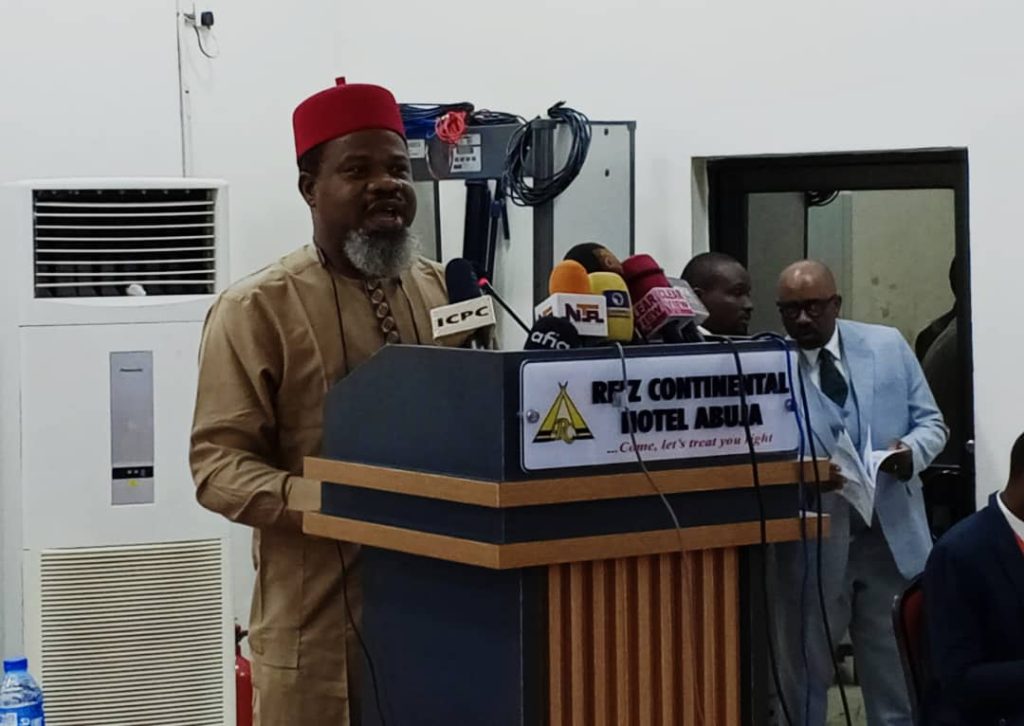
“While our role in combating corruption is crucial, we cannot ignore the inherent dangers that come with it. The fight against corruption is, in itself, a risky venture. Journalists who expose corruption often face threats to their lives, intimidation, harassment, and, in some cases, physical violence. Unfortunately, these risks are all too real in Nigeria and other parts of the world.
“The safety and security of journalists must be a top priority if we are to continue this essential work. The NUJ, along with our partners, must advocate for stronger protections for journalists who take on the dangerous task of exposing corruption. There is an urgent need for laws that not only protect freedom of the press but also ensure that journalists can carry out their duties without fear of retaliation.
“Journalists should not be forced to choose between their duty to the public and their personal safety. We need comprehensive policies that guarantee the security of investigative journalists and whistleblowers, ensuring that their important work does not result in harm. This includes creating mechanisms for reporting threats, providing legal support, and fostering a safe environment where journalists can carry out their work with confidence.
“I call on the government, civil society organizations, and media owners to ensure that journalists are well-equipped and protected, both physically and legally, to investigate and report on corruption without interference.
The pen is mightier than the sword, but it must be wielded with safety in mind” He said.
Also, the Director General of the Nigeria Television Authority NTA, represented by Hajiya Halima Musa-Sule noted that media was the most successful tool to fight corruption in the country, promising more robust partnership with ICPC in its fight against corrupt practices.


